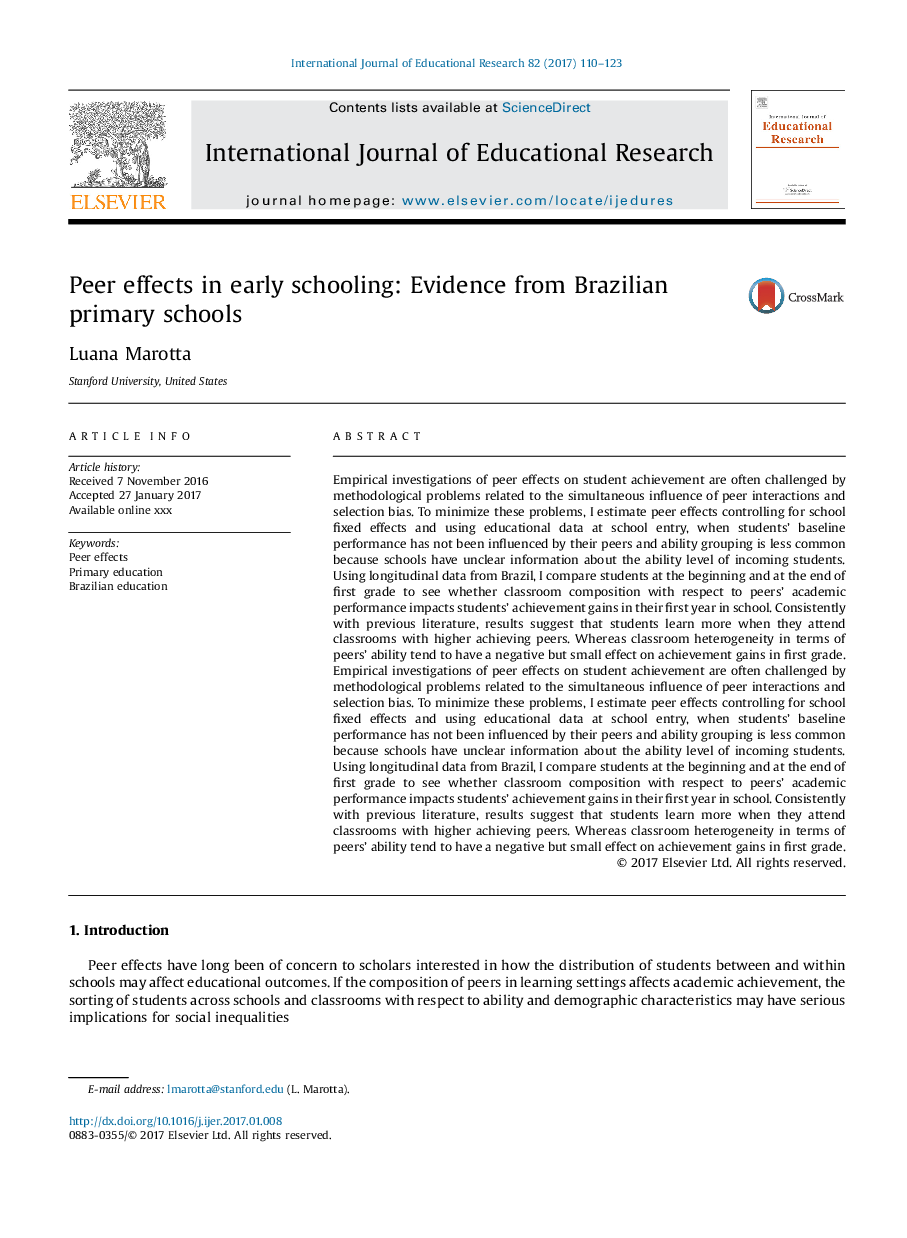ترجمه فارسی عنوان مقاله
اثرات همتراز در مدارس ابتدایی: شواهد مدارس ابتدایی برزیل
عنوان انگلیسی
Peer effects in early schooling: Evidence from Brazilian primary schools
| کد مقاله | سال انتشار | تعداد صفحات مقاله انگلیسی |
|---|---|---|
| 133631 | 2017 | 14 صفحه PDF |
منبع

Publisher : Elsevier - Science Direct (الزویر - ساینس دایرکت)
Journal : International Journal of Educational Research, Volume 82, 2017, Pages 110-123
ترجمه کلمات کلیدی
اثرات همتراز آموزش ابتدایی آموزش برزیلی،
کلمات کلیدی انگلیسی
Peer effects; Primary education; Brazilian education;

